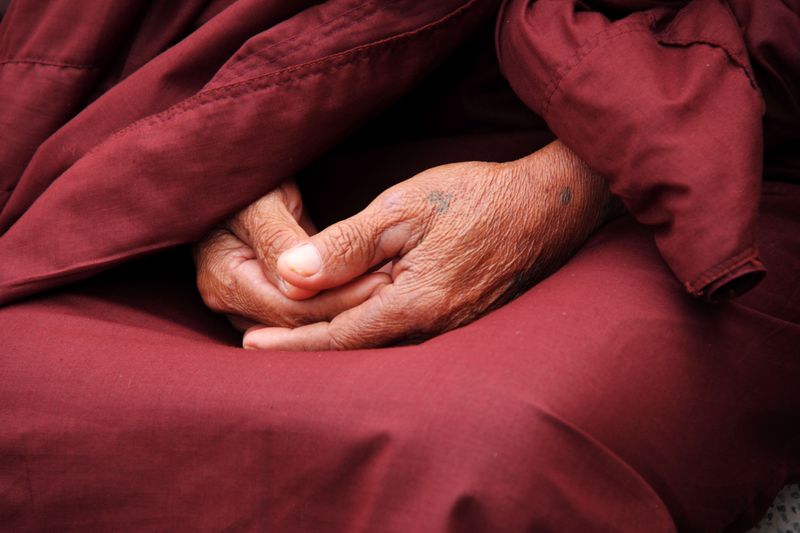Death of Christian Broadcasting Network Founder and Presidential Candidate Pat Robertson
Reverend Pat Robertson, founder of the Christian Broadcasting Network, has died at the age of 93. He passed away at his home in Virginia on June 8, 2023, according to a statement from his son, Gordon Robertson. Robertson was a prominent religious broadcaster who turned his tiny Virginia TV station into a global evangelical network and helped make religion central to Republican Party politics in America.
Impact on Religion and Politics in America
For over 50 years, Robertson was a familiar presence in American living rooms, known for his long-running daily television show, “The 700 Club,” and his televised pronouncements of God’s judgment, blaming natural disasters on everything from homosexuality to the teaching of evolution. Through his solicitation of donations, Robertson enjoyed great influence and brought a large following with him when he moved directly into politics, seeking the Republican presidential nomination in 1988.
Robertson helped cement the alliance between conservative Christians and the Republican Party, which shaped American politics for decades to come. Robertson pioneered the now-common strategy of courting Iowa’s network of evangelical Christian churches. By the time of his resignation as the president of the Christian Coalition, a political organization he founded, his impact on both religion and politics in the US was “enormous,” according to political science professor John C Green of the University of Akron.
A Marriage of Politics and Religion
Robertson was born Marion Gordon Robertson on March 22, 1930, in Lexington, Virginia. His father, Absalom Willis Robertson, served for 36 years as a US representative and US senator from Virginia. Robertson received a law degree from Yale University Law School but failed the bar exam and chose not to pursue a law career. Instead, he received a master’s in divinity from New York Theological Seminary, after which he bought a bankrupt UHF television station in Portsmouth, Virginia. He said he had just $70 in his pocket, but soon found investors, and the Christian Broadcasting Network (CBN) went on the air on October 1, 1961.
One of Robertson’s innovations was to use the secular talk-show format on the network’s flagship show, “The 700 Club,” which grew out of a telethon when Robertson asked 700 viewers for monthly $10 contributions. His guests eventually included several US presidents, including Jimmy Carter, Ronald Reagan, and Donald Trump.
Criticisms and Controversial Statements
At times, Robertson’s on-air pronouncements drew criticism. He became widely known for his televised statements of God’s judgment, blaming natural disasters on homosexuality, pornography, abortion rights, and church-state separation. His assertion that the terrorist attacks that killed thousands of Americans on September 11, 2001 were caused by God drew criticism and White House condemnation. He also called for the assassination of Venezuelan President Hugo Chavez in 2005 and warned that towels in Kenya could transmit AIDS in 2014.
While Robertson condemned Democrats caught up in sex scandals, he helped solidify evangelical support for Donald Trump, dismissing the candidate’s sexually predatory comments about women as an attempt “to look like he’s macho.” However, after Mr Trump lost to Joe Biden in 2020, Robertson said Mr Trump was living in an “alternate reality” and should “move on.”
Editorial and Advice
Pat Robertson’s passing marks the end of an era in American politics. Robertson’s impact on both religion and politics in the US was enormous. Yet his career was not without controversy and criticisms. His statements on issues such as natural disasters and AIDS drew widespread backlash and condemnation.
As we mourn his passing, we should also take this opportunity to reflect on the close relationship between religion and politics. Robertson helped forge a marriage of politics and religion that shaped American politics for decades. Nevertheless, his controversial statements demonstrate the danger of using religion to justify political positions or to make judgments about others. It is essential to remember that religion should not be used to justify bigotry, intolerance, or hate.
We live in a time where the boundaries between religion and politics often blur. It is essential to remember that our political beliefs should be informed by reason, tolerance, and respect for all individuals, regardless of their religious beliefs. Religion can be a powerful source of inspiration and hope, but it should not be used as a tool for political manipulation. Pat Robertson’s life and legacy remind us of the importance of being mindful of this distinction.

<< photo by Pixabay >>
You might want to read !
- “The Politicization of the Tasmanian AFL Team: A Game of Power and Partisanship”
- Chris Christie: An examination of his policies and views
- “Trump Fires Back at Christie with Weight-Based Insults”
- “Reflections on the Bittersweet Goodbye of ‘Never Have I Ever’ by its Stars”
- Farewell to “Never Have I Ever”: Reflecting on the Show’s Impact and What’s Next for Its Stars
- ‘Buddy’s bags another milestone: Franklin’s brilliance continues on the goalkicking front’




